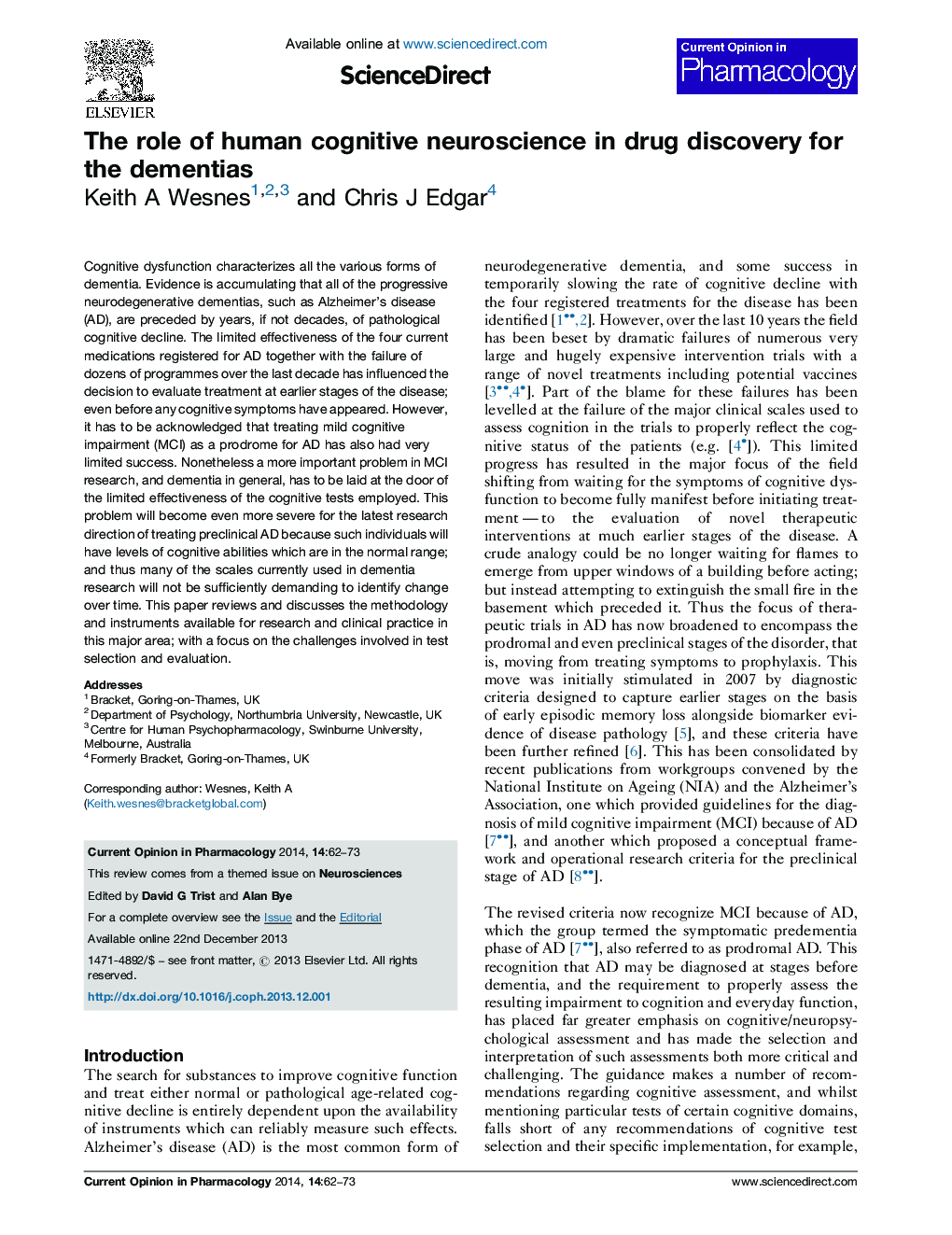| Article ID | Journal | Published Year | Pages | File Type |
|---|---|---|---|---|
| 5826094 | Current Opinion in Pharmacology | 2014 | 12 Pages |
Abstract
Cognitive dysfunction characterizes all the various forms of dementia. Evidence is accumulating that all of the progressive neurodegenerative dementias, such as Alzheimer's disease (AD), are preceded by years, if not decades, of pathological cognitive decline. The limited effectiveness of the four current medications registered for AD together with the failure of dozens of programmes over the last decade has influenced the decision to evaluate treatment at earlier stages of the disease; even before any cognitive symptoms have appeared. However, it has to be acknowledged that treating mild cognitive impairment (MCI) as a prodrome for AD has also had very limited success. Nonetheless a more important problem in MCI research, and dementia in general, has to be laid at the door of the limited effectiveness of the cognitive tests employed. This problem will become even more severe for the latest research direction of treating preclinical AD because such individuals will have levels of cognitive abilities which are in the normal range; and thus many of the scales currently used in dementia research will not be sufficiently demanding to identify change over time. This paper reviews and discusses the methodology and instruments available for research and clinical practice in this major area; with a focus on the challenges involved in test selection and evaluation.
Related Topics
Life Sciences
Neuroscience
Cellular and Molecular Neuroscience
Authors
Keith A Wesnes, Chris J Edgar,
